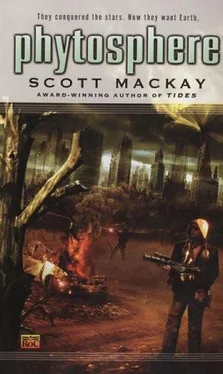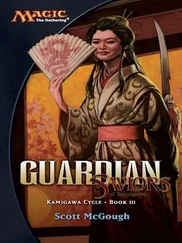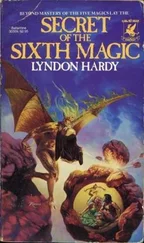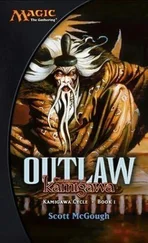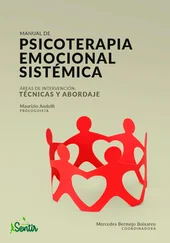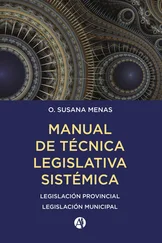“I’m sober three weeks today,” he told Gerry.
“Congratulations.”
“This thing we’re doing… you have no idea what it means to me. I know you two are the ones with people back on Earth, but I finally feel as if I’m doing something…that really matters.”
Gerry gestured at the control panel, then at the CAPS they were wearing. “All this AviOrbit stuff… I had no idea. AviOrbit deserves a lot of the credit.”
“They’ve made it fairly foolproof,” said Mitch. “Though that warning… on the starboard number five thrust conduit.”
“It’s fixed,” said Ian.
“Are you sure?”
“I’m getting a green on it. And the procedure allows for a test fire. The test fire is a go.”
“I’ve just never seen it before. Especially in an M-class freighter. And as that particular thrust conduit is supposed to link FMC Drive Five—”
Ian gave him a wry look. “We got red-lighted all the time back in the old days. The thrust conduit’s just a minor system with a hundred redundancies in it. You don’t have to worry about it.”
They transited past Mars, which happened to be in closest opposition, a week later and the Martians sent them fresh oxygen, food, water, and the heartfelt best wishes of its citizens.
Then it was out to the asteroid belt.
The sun was no longer an orb but a gigantic star, a bright presence to their port side, bristling with
jagged rays, like a dangerous and sharp object one could cut oneself on if one got too close.
They settled into their own Kirkwood Gap seven million miles away from Gaspra. The Prometheus performed exactly to spec and braked as it neared the asteroid, spinning round so that the log-boomed singularity drives were now behind it.
Over the next sixteen hours, as they got closer to Gaspra, Gerry kept looking out the window, hoping to get a visual on the asteroid, but it finally had to be sighted through the telescope apparatus, and he got his first view of the misshapen rock on the monitor eighteen hours later.
Twelve miles long and seven across, it reminded him, in shape, of a peanut—a giant stone floating through space, twirling like a gargantuan football, rotating once every six hours and fifty-eight minutes.
The approach procedures were fully computerized. Gerry sat back and watched Prometheus take control.
She approached the asteroid’s “south pole,” though such directions were entirely relative, and for mission convenience only. She brought herself within five hundred yards of the asteroid’s surface, firing a final braking thrust to match Gaspra’s orbit, then initiated two axial bursts so that she began to rotate exactly in tandem. What Gerry saw below him was a bleak, moonlike surface, with horizons that dipped alarmingly and craters that looked disproportionately big on what was a small celestial body.
With its orbit and rotation established in Gaspra’s wake, Prometheus then fired three harpoons at the planetoid, instantly compensating for the force of the shots by five quick and perfectly timed blasts of its axial thrusters.
“She’s red-lighted our axial number three,” said Ian.
“Really?” said Mitch.
Ian quickly keyed in some queries on the diagnostics. “It’s a bug,” he announced a few seconds later.
“Like the one we got in the number five starboard thrust conduit.”
“That’s suspicious,” said Mitch.
The word choice startled Gerry. “Suspicious how?”
“One red-light I can accept,” said Mitch.
“We used to get red-lights all the time,” said Ian.
“And when was your last active mission?” asked Mitch. The question was rhetorical. Everyone knew Ian hadn’t flown in five years. Ian looked away. “You see what I mean?”
Then Ian brightened up. “Look, she’s green-lighting it.”
“What’d you do?”
“I didn’t do anything.”
“Shit.”
“Mitch, it’s working fine. There’s just some small bug in the diagnostics. There’s nothing wrong with the basic equipment.”
“We got every single Tarsalan?” asked Mitch. “There weren’t any hiding out anywhere?”
Gerry got the drift of this with a jolt to his heart. “You think we’re sabotaged?”
“Don’t they want to stop us any way they can?” said Mitch, looking at Gerry through his visor screen.
“They don’t want us to save the planet. They want to keep it bagged until their reinforcements arrive.
They’ll keep us locked away like zoo animals on Mars, Mercury, and the moons, and roll into Earth unopposed.”
“Jesus Christ, Mitch,” said Ian, “we’ve had two red lights, and they’ve both been resolved. AviOrbit whipped this mission together in record time. What do you expect? And yes, we got all the Tarsalans.”
“But did we get all their macrogens? I don’t trust those things. I never have. Especially the way they reproduce themselves.”
“Gerry, I think he’s having some mission stress. You’re the medic proxy. Maybe you should give him something.”
Gerry pointed to the screen. “Look. We have target acquisition.”
The screen showed that the three harpoons had exploded deep into the rocky, sun-blasted dirt of Gaspra, and the panel was green-lighting them for rendezvous.
“There,” said Ian. “You see? A green light. Are you happy? Let’s roll this rig in.”
Over the next fifteen minutes, the Prometheus pulled itself along the harpoon cables, traveling at no more than two miles per hour. The rock got bigger and bigger, and Gerry was somewhat comforted to see that it was green lights all the way. Still, the thought nagged. Macrogens. Devices no bigger than his thumb, capable of all kinds of nasty work, including the deployment of millions of nanogens. Had Kafis outplayed him after all? Were the number five starboard thrust conduit and axial number three just the start? Was the Prometheus slowly going to self-destruct as it got deeper into its mission?
The Prometheus touched down without any fanfare and hardly any dust.
The crew spent the next hour fastening her down with fluorescent green anchoring bolts, walking around on the surface with the special crampons on their boots so they wouldn’t drift away.
The FMC Transit Collective drives towered above them in an upside-down pyramid, an architecturally impossible structure anywhere but in the negligible gravity of a planetoid. The sun came up, the sun went down, all within the space of the first three and a half hours, but it was an odd sequence because the crew was on the south pole, and the sun didn’t so much set as hide behind a ridge, slipping out of sight on the left side, then coming out on the right, as if it were playing hide-and-seek with them.
The surface of the asteroid was different from the Moon in that there were only scattered deposits of loosely clinging regolith, like the pockets of snow that hid in the shade when spring came. For the most part it was bare rock, the best possible anchor for their specially designed crampons.
The work was a lot harder than Gerry had thought it was going to be, construction work, really, and he was glad his suit had artificial muscles, and that the gravity was so weak, because he wouldn’t have been able to take the strain otherwise. They jackhammered the Prometheus into the rock, and once all sixty-eight bolts were done, they stopped calling it the Prometheus and started calling it the PCV—the primary command vehicle.
After the PCV was established, they had a rest period of six hours.
At the end of that six hours they got up and launched a small survey probe—what the technicians at AviOrbit had christened Smallmouth 3, in Gerry’s honor, even though technically speaking Smallmouth 2 had been nothing more than a Styrofoam ball embedded with microinstruments.
Читать дальше
